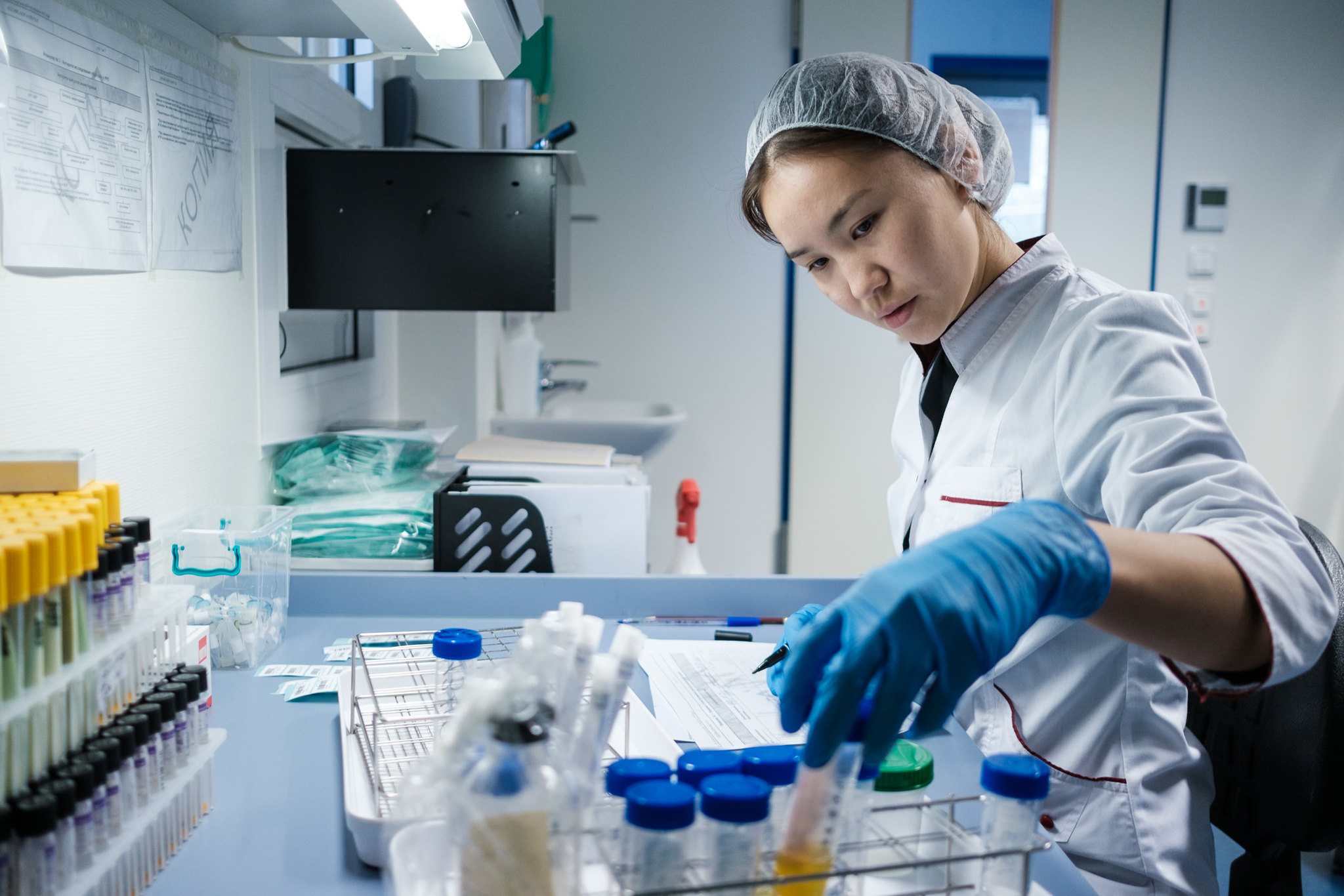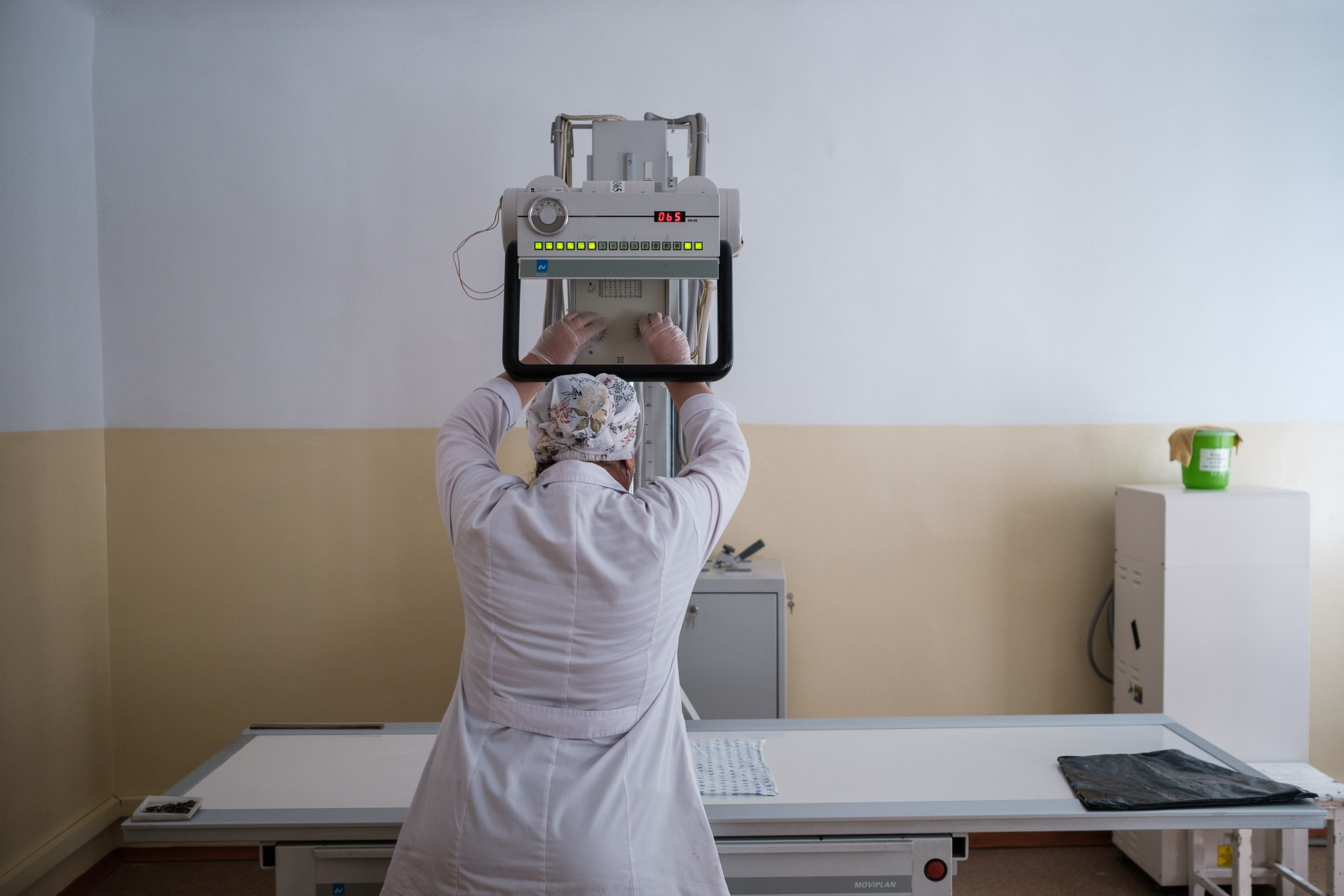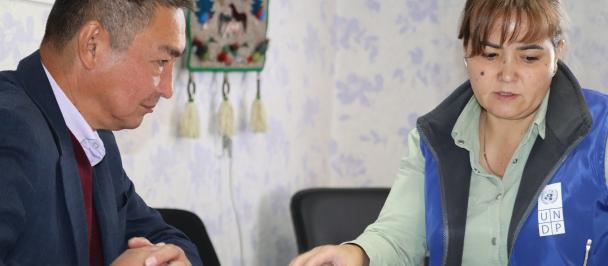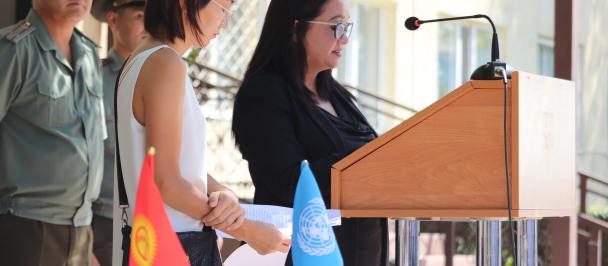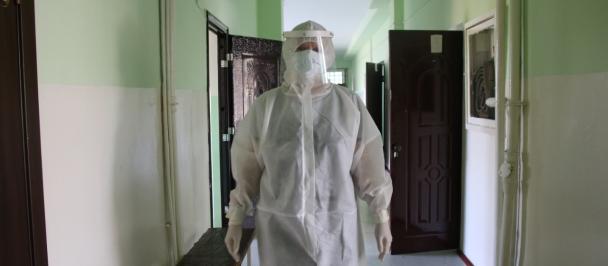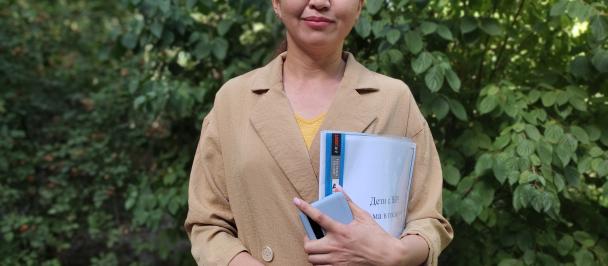Throughout the pandemic, TB hospitals and health care workers were mobilized in the fight against COVID-19 with the help of UNDP, financially supported by the Global Fund to Fight AIDS, Tuberculosis and Malaria through their COVID-19 Rapid Mechanism. Photo: Dmitry Motinov / UNDP Kyrgyzstan
March 24th is World TB Day, an occasion to point out the urgency of tackling tuberculosis throughout the world. This year’s slogan, “the clock is ticking”, reminds us of the scale of the epidemic: to date, TB is the deadliest infectious disease in the world, accounting for 1.4 million yearly deaths (data for 2019) and the death of a child every 2 minutes. These numbers are bound to worsen because of the COVID-19 pandemic, and it’s more than ever crucial to re-commit to the fight against TB.
COVID-19 has strongly hindered TB programs in Kyrgyzstan, which is among the 30 high burden countries for drug-resistant tuberculosis (DR-TB). The number of notified TB cases in 2020 has dropped by 30% (3814 in January – September 2020 vs, 5361 in the same period of 2019), which, according to scientific predictions, will lead to additional deaths.
UNDP, under its project “Effective HIV and TB control in the Kyrgyz Republic”, funded by the Global Fund to fight AIDS, Tuberculosis and Malaria, had redoubled efforts to minimize the impact of COVID-19 on TB control programs and their beneficiaries.
“The Global Fund to fight AIDS, Tuberculosis and Malaria helped UNDP to support Kyrgyzstan’s healthcare system and TB services by offering flexible support and substantial additional funding. Our UNDP HIV and TB project team went beyond the call of duty to keep TB and HIV programs on track, sustaining the timely delivery of life-saving drugs and medical equipment, despite global shortages, stock-outs, border closures, and many exceptionally difficult logistic challenges,” said Louise Chamberlain, Resident Representative of UNDP in Kyrgyzstan in her statement for World TB Day.
Preparation of an X-ray machine at the Bishkek Center for Tuberculosis Control. Photo: Dmitry Motinov / UNDP Kyrgyzstan
Throughout the pandemic, TB hospitals and health care workers were mobilized in the fight against COVID-19. UNDP, financially supported by the Global Fund to Fight AIDS, Tuberculosis and Malaria through their COVID-19 Rapid Mechanism, together with national partners, turned to alternative resources for ensuring uninterrupted services to TB patients. These included the engagement of additional TB case managers, video observed treatment, mobile brigades and the provision of psychological support to both patients and medical workers. In addition, it included the provision of medical equipment and tests for COVID-19 prevention, diagnostics and treatment, construction of 17 isolation rooms in Osh and Naryn hospitals for patients with both TB and COVID-19, distribution of food packages to patients in need and the organization of 14-day observation periods for TB medical staff working in the COVID-19 red zones.
This year hasn’t just been characterized by setbacks. Kyrgyzstan’s TB program has also achieved valuable successes in this year of crisis. Thanks to continuous UNDP support to the National TB Programme in coordination, capacity development, monitoring and advocacy, the share of DR-TB patients tested for second line drugs susceptibility rose to 77% in 2020 (vs. 66% in 2019 and 52% in 2018), enabling doctors to prescribe the most efficient treatment for their patients, therefore giving them the highest possible chances for recovery. Transportation services for sputum samples funded by UNDP/GF Project were interrupted only for one week during the emergency state, just for the time needed to obtain the necessary permissions. Constant efforts from the project team helped guarantee the timely delivery of TB drugs, regardless of global shortages, procurement obstacles and closed borders.
Doctor is conducting medical check for patient. Photo: Dmitry Motinov / UNDP Kyrgyzstan
In 2020, more than 1,000 DR-TB patients received monthly motivational payments from the UNDP/Global Fund project, and among them 890 received individual help, preventing 84 patients from interrupting treatment and returning 14 to treatment or medical observation. Increased financial support to active case finding allowed to identify an additional 108 TB cases. Computed tomography funded by the project also helped diagnose TB in 51 children.
This year again, the clock is ticking to end TB. TB needs to remain a priority despite the COVID-19 pandemic; furthermore, TB needs even more attention and more funding than before. For World TB Day 2021, the UNDP / Global Fund project is contributing to the national awareness-raising campaign by distributing brochures, putting up banners and organizing T.V. broadcasts dedicated to TB.
Significant achievements have been reached in Kyrgyzstan in the past years, including the introduction of new, more efficient drugs for drug-resistant TB treatment, the alignment of laboratories and treatment protocols with global standards and an outstanding increase in treatment success rate of extensively drug-resistant tuberculosis (from 15.2% for XDR-TB patients who started treatment in 2016 to 52% for those enrolled on treatment in 2018). Now, it is crucial to preserve these successes from further setbacks and to multiply efforts to end TB by 2030.
Media contacts:
Ainagul Abdrakhmanova
ainagul.abdrakhmanova@undp.org
+996 770 183 493

 Locations
Locations